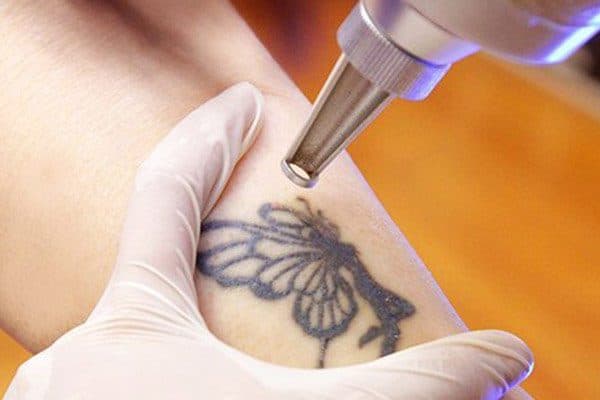
How Much Does Tattoo Removal Cost? A Comprehensive Guide to Pricing and Factors
Regretting that tattoo you got years ago? You're not alone. With tattoo removal becoming increasingly popular, many people are seeking answers to one crucial question: 'How much does tattoo removal cost?'
Average Cost of Tattoo Removal
The cost of tattoo removal varies significantly depending on your location, the clinic you choose, and the specifics of your tattoo. However, here are the current industry standards:

Per Session Costs:
- Typical range: $200 to $500 per session
- Budget options: As low as $100 per session at some clinics
- Premium treatments: Can reach $615+ per session
Total Treatment Costs:
Based on industry data, you can expect to pay anywhere from $1,000 to $10,000 for complete tattoo removal. The American Society of Plastic Surgeons reports that the average cost of laser tattoo removal is $697 per session, though this varies widely based on geographic location and clinic reputation.
Factors That Affect Tattoo Removal Cost
Understanding what influences pricing can help you better estimate your total investment. Here are the key factors that determine how much you'll pay:
Size Matters Most
The size of your tattoo is perhaps the most significant cost factor. Most clinics price their services based on the square inches of tattooed skin:
- Small tattoos (2-3 inches): $200-$400 per session
- Medium tattoos (4-6 inches): $300-$600 per session
- Large tattoos (7+ inches): $500+ per session
Color Complexity
Not all ink colors are created equal when it comes to removal. Black and red inks are typically the easiest and cheapest to remove, while colors like yellow, green, and fluorescent inks require more sessions and specialized laser wavelengths, increasing the overall cost.

Tattoo Age and Quality
Interestingly, older tattoos are often less expensive to remove than newer ones. Professional tattoos with high-quality, deeply embedded ink require more sessions than amateur tattoos with lighter ink application.
Location on Body
The location of your tattoo affects both the number of sessions needed and the cost per session. Areas with better blood circulation, like the torso, typically respond better to treatment than extremities like hands and feet.
How Many Sessions Will You Need?
One of the most common misconceptions about tattoo removal is that it happens quickly. In reality, the process requires patience and multiple sessions:
Typical Session Requirements:
- Small, simple tattoos: 5-8 sessions
- Medium tattoos: 8-12 sessions
- Large or complex tattoos: 10-15+ sessions
- Complete removal average: 10-12 sessions
Sessions are typically spaced 6-8 weeks apart to allow your skin to heal and your immune system to process the broken-down ink particles. This means the removal process can take anywhere from 10 months to 2+ years.
Alternative Pricing Models
Different clinics offer various pricing structures to make treatment more affordable:
Package Deals
Many clinics offer discounted rates when you purchase multiple sessions upfront. For example, instead of paying $400 per session for 10 treatments ($4,000 total), you might pay $3,200 for a 10-session package.
Flat-Rate Removal
Some providers offer flat-rate pricing for complete removal up to a certain size. This can provide cost certainty, though you'll typically pay more upfront.
Payment Plans
Many clinics partner with financing companies like CareCredit to offer monthly payment plans, making treatment more accessible.
Hidden Costs to Consider
When budgeting for tattoo removal, don't forget these additional expenses:
- Consultation fees: $50-$150 (often credited toward treatment)
- Patch test: $89-$150
- Aftercare products: $50-$100 per treatment cycle
- Follow-up appointments: May be included or charged separately
Geographic Price Variations
Location significantly impacts pricing. Major metropolitan areas like New York, Los Angeles, and San Francisco typically charge premium rates, while smaller cities and rural areas offer more competitive pricing. For example, a session that costs $500 in Manhattan might cost $200 in a smaller Midwest city.
Insurance and Financing Options
Unfortunately, tattoo removal is considered a cosmetic procedure, so health insurance rarely covers the cost. However, there are exceptions:
- Some insurance plans cover removal if the tattoo is causing medical issues
- Employer-sponsored programs for certain professions
- Military benefits in specific circumstances
For financing, many clinics offer:
- In-house payment plans
- Third-party financing through companies like CareCredit
- Credit card payment options
Is It Worth the Investment?
While tattoo removal is a significant financial commitment, many people find it worthwhile for various reasons:
- Career advancement opportunities
- Personal comfort and confidence
- Relationship considerations
- Making room for new, better tattoos
Maximizing Your Investment
To get the best value from your tattoo removal treatment:
- Research clinics thoroughly: Look for certified practitioners with good reviews and before/after photos
- Ask about package deals: Bulk pricing can save hundreds or thousands of dollars
- Follow aftercare instructions: Proper care can improve results and reduce the number of sessions needed
- Be patient: Rushing the process with too-frequent sessions can be counterproductive and more expensive
Conclusion
Tattoo removal costs vary widely, but understanding the factors that influence pricing can help you make an informed decision. With per-session costs ranging from $200 to $500 and total treatment costs between $1,000 to $10,000, it's a significant investment. However, for many people, the freedom from an unwanted tattoo is worth every penny.
Before committing to treatment, research multiple providers, understand all associated costs, and consider your financing options. Remember that the cheapest option isn't always the best – quality treatment from experienced professionals often provides better results and can actually be more cost-effective in the long run.
The key is finding a reputable provider who can give you a realistic assessment of your specific situation, including the number of sessions needed and total expected cost. With proper planning and realistic expectations, tattoo removal can be a worthwhile investment in your personal satisfaction and future opportunities.